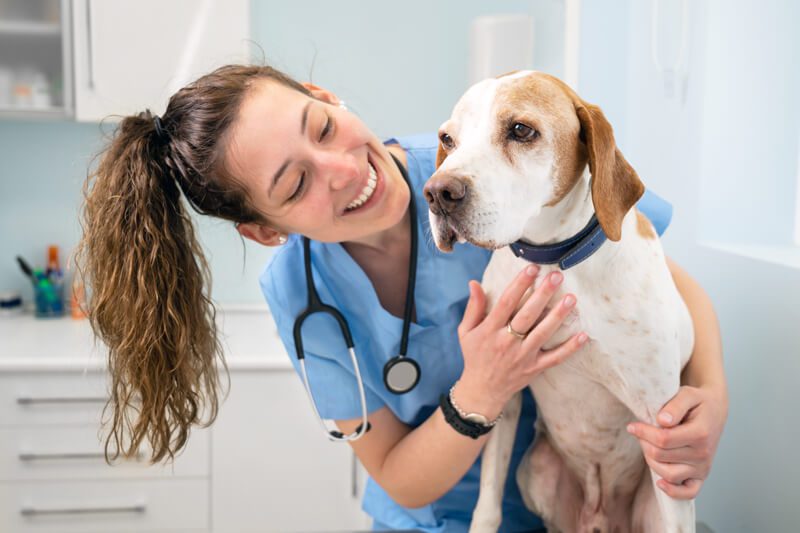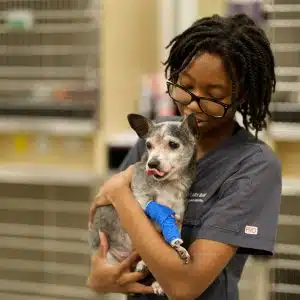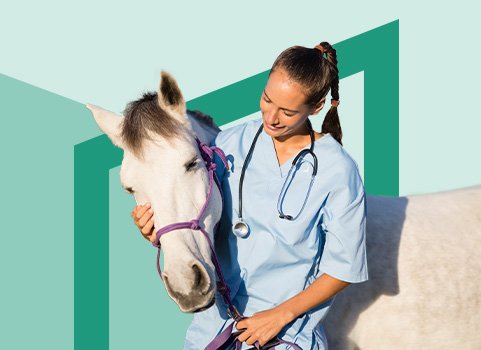Understanding the Function of a Vet Oncologist in Your Pet dog's Cancer Treatment
A veterinary oncologist concentrates on dealing with and identifying cancer in animals. Their proficiency is crucial for creating individualized treatment plans that resolve the distinct demands of each pet. Early diagnosis can substantially affect end results, making their duty even much more essential. Understanding the different therapy alternatives and how these specialists work together with key vets is important. What methods do they use to boost your pet dog's high quality of life throughout this difficult time?

What Is a Vet Oncologist?
A vet oncologist is a specialized vet who concentrates on dealing with and diagnosing cancer cells in pet dogs. These experts possess sophisticated training in both vet medication and oncology, enabling them to comprehend the intricacies of malignant diseases in animals. Their experience permits them to perform a selection of diagnostic procedures, including imaging methods and research laboratory examinations, to properly identify different kinds of cancers cells in pets.
In addition to diagnosis, vet oncologists create customized therapy plans, which might consist of surgery, chemotherapy, radiation treatment, or palliative treatment. They function carefully with pet owners to explain therapy options and possible end results, ensuring that families make informed choices concerning their pets' treatment. Moreover, veterinary oncologists typically work together with other veterinary experts and general specialists, creating an extensive technique to family pet health. By concentrating on cancer cells care, they play a vital role in boosting the top quality of life for family pets identified with hatreds.
The Relevance of Very Early Diagnosis and Therapy
Early medical diagnosis and therapy of cancer in pet dogs substantially improve the chances of effective results and improved lifestyle. When cancer cells is determined in its beginning, veterinary oncologists can execute targeted interventions that might reduce illness progression and alleviate signs. This proactive strategy enables far better management of the illness, possibly causing longer survival times and enhanced convenience for the pet.
Furthermore, very early discovery usually indicates that treatment alternatives might be less invasive and extra effective, lowering the total concern on both the family pet and its proprietor. Routine veterinary check-ups and recognition of refined behavioral changes are important, as they can help with prompt diagnoses. Owners must continue to be attentive and consult their vet at the initial indicator of issue. Veterinary Cancer Specialist. Inevitably, a very early diagnosis equips animal owners to make educated choices concerning their pet dog's treatment, substantially impacting the overall journey through cancer administration
Treatment Options Supplied by Vet Oncologists
When confronted with a cancer cells medical diagnosis, family pet owners can discover a selection of therapy alternatives given by veterinary oncologists that are customized to the particular demands of their pets. These experts typically supply a mix of surgical procedure, radiation treatment, radiation therapy, and immunotherapy. Surgical intervention might aim to eliminate tumors or affected cells, while chemotherapy uses drugs to eliminate and target cancer cells, typically provided in cycles.
Radiation treatment concentrates on using high-energy rays to shrink lumps and alleviate discomfort. Immunotherapy, an extra recent improvement, utilizes the pet dog's immune system to combat cancer cells better. Added helpful treatments, such as pain monitoring, nutritional assistance, and palliative care, are likewise vital components of a detailed treatment strategy. By examining each case separately, vet oncologists ensure that the right here picked treatment straightens with the animal's overall health and cancer cells type, taking full advantage of the opportunities of imp source a positive result.
The Collaborative Approach: Working With Your Primary Vet
Cooperation between primary veterinarians and veterinary oncologists is important for giving comprehensive like family pets diagnosed with cancer. This collaboration ensures an extensive strategy to treatment, combining the specialized understanding of oncologists with the recurring care provided by main vets. Together, they analyze the animal's health and wellness, create individualized therapy plans, and keep an eye on the pet dog's development throughout the cancer journey.
Primary veterinarians typically offer as the first factor of call, recognizing potential signs of cancer cells and referring people to oncologists for specialized diagnostics and therapy options. Following the oncologist's referrals, the primary veterinarian plays a key duty in managing the pet's overall health, including discomfort administration and helpful care.
Efficient interaction in between these specialists cultivates a unified method, permitting timely interventions and adjustments to therapy as needed. This collective approach inevitably improves the high quality of care and assistance for pet dogs and their owners during a tough time.


Sustaining Your Pet Dog Via Cancer Cells Care
Sustaining a pet through cancer cells care needs a complete understanding of the psychological and physical obstacles encountered by both the pet and its owner. Caretakers need to listen to the family pet's altering needs, which might include taking care read what he said of discomfort, adjusting diets, and monitoring adverse effects from treatments. Providing a comfy, trouble-free atmosphere is important for the family pet's wellness.
Psychological assistance is equally vital; proprietors ought to seek to continue to be positive and engaged while recognizing their very own feelings of anxiousness and despair. Creating an assistance network, including vets, household, and friends, can relieve some concerns.
Additionally, pet dog owners need to educate themselves concerning the particular sort of cancer and therapy choices offered, fostering notified discussions with vet oncologists. Inevitably, a caring strategy, combined with positive treatment and assistance, can improve the pet dog's quality of life throughout this tough journey.
Often Asked Inquiries
Just how Do I Pick the Right Vet Oncologist for My Pet?
Choosing the best veterinary oncologist includes looking into credentials, looking for referrals, evaluating experience with details cancers cells, gauging interaction styles, and checking out clinics to ensure a comfortable atmosphere for both the animal and owner during treatment.
What Should I Expect Throughout the First Consultation?
Throughout the very first visit, the animal owner can expect a complete assessment, conversation of medical history, diagnostic tests, and a treatment strategy rundown. The vet will resolve concerns and supply advice for ongoing treatment.
Are There Any Type Of Costs Related To a Vet Oncologist's Solutions?
Expenses connected with a vet oncologist's solutions can differ substantially based on location, therapy intricacy, and required diagnostics. Veterinary Oncologist. Pet dog proprietors need to prepare for expenditures for assessments, examinations, and potential ongoing treatment plans customized to their family pets' needs

Can My Animal Still Get Routine Vet Care While Seeing an Oncologist?
Pets can obtain routine veterinary treatment while seeing an oncologist. Working with treatments guarantees thorough wellness management. Routine examinations complement specialized cancer treatment, permitting holistic surveillance of the animal's general wellness and resolving other health problems.
What Resources Are Offered for Family Pet Owners During Their Pet dog's Cancer Journey?
Different resources are available for family pet owners navigating their pet's cancer trip, including assistance groups, on the internet forums, instructional web sites, and financial aid programs, all targeted at providing assistance, emotional support, and practical details during this tough time.
A vet oncologist is a specific veterinarian that focuses on detecting and treating cancer in animals. They function very closely with pet dog owners to discuss treatment choices and prospective end results, guaranteeing that families make notified choices regarding their animals' treatment. When faced with a cancer cells diagnosis, pet proprietors can explore a range of therapy alternatives offered by veterinary oncologists that are customized to the specific requirements of their pets. Collaboration in between main veterinarians and veterinary oncologists is crucial for offering considerable care to animals diagnosed with cancer cells. Additionally, family pet owners need to educate themselves concerning the particular kind of cancer and treatment choices readily available, fostering informed conversations with veterinary oncologists.